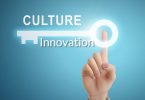Any experienced product manager will tell you that when it comes to developing goods and services, a team is more than just the sum of its parts. It’s a living, breathing entity that brings together people with very different talents who all have their own unique strengths. At the same time, a team is also something so much bigger and more important than any one person. That dynamic is truly an asset to the organization and one that must be nurtured.
In many ways, it’s the old idea of “the chain is only as strong as its weakest link.” Many people think this refers to individual employees in terms of teams that develop products, but it really doesn’t. It refers to the team itself.
Case in point: organizations that frequently stop to not only discuss how they’re working together but who also make an effort to LEARN together often improve productivity by up to 40%. The results show up as breakthroughs in innovation, critical thinking, growth – and often all of these things at the same time.
The Foundation of Organizational Learning
In his book “The Fifth Discipline,” Peter Senge talks about the idea that organizations must become LEARNING organizations if they’re going to continue to grow and evolve over time. He talks a great deal about how teams are the fundamental unit of organizational learning for this reason.
When you think a little bit more about learning as a concept, it’s easy to see why it motivates individuals as well as teams. Even as children, the desire to learn is about more than just effectively adapting to the changing world around us. The desire to learn is rooted in an impulse to GENERATE – expanding our capacity and unlocking new opportunities for growth is literally human instinct at its core.
Organizational Learning Considerations
It a given that organizational learning does present its own unique challenges. The problems we face today are often consequences of the solutions we created yesterday, as any product manager will tell you that the harder you push on the system, the harder the system pushes back.
Organizational learning isn’t necessarily what people are accustomed to, or even comfortable with, so behavior may grow worse before it grows better. However, even the smallest of changes can produce big results – particularly in terms of innovation.
The LEADERS in learning organizations play a big role in helping their teams become acclimated to the idea that they’re now part of something bigger and more important than themselves. Successful leaders strive to build organizations where people are continually willing to expand what it is they can do today to shape a powerful, better future for tomorrow. In essence, this means that you can add “learning” to the ever-expanding list of things that leaders are responsible for in the modern era.
Leaders are Designers
In order to effectively build a company where organizational learning becomes the new norm, leaders must first build a foundation of purpose and core values. These governing ideas not only outline what you’re setting out to accomplish but why this is better than the alternative.
Product managers, in particular, must also develop the types of policies, strategies and even structures for daily life that will translate into governing ideas and decisions. This focus, in turn, gives way to the development of organizational learning processes. Essentially, you’re designing a framework that makes organizational learning not only the best choice but the easy one, too.
Organizational Learning Challenges
You will inevitably come across employees who focus only on their position and who, because of this, take very little responsibility for what is going on when all positions interact. In a way, you can’t blame them – the idea that “I am my position” is one that has been around for almost as long as business in general.
The problem arises when we focus solely on our position and not the larger whole. We end up being blind to how our actions extend beyond the BOUNDARIES of our position. This attitude is detrimental to the organizational learning goal. When those consequences come back to haunt us, as they invariably do, we think that these are new problems rather than ones resulting from existing in a silo. The ability to look at the bigger picture then becomes crucial. So embrace the macro approach. If we think that we learn only from our own personal experience, we never truly understand the consequences of the important decisions that we’re making today when they rear their ugly heads tomorrow.
In the End
At the end of the day, organizational learning is a powerful tool to get your organization and team finally working as one powerful collective for the very first time. It can help you break new ground and maybe even achieve greatness in quality, productivity, predictability, responsiveness and much more.
These are all important qualities for your organization, which means that you need to start changing your thinking around teams TODAY. View teams not as a tool but as the true corporate asset they truly are. Leave the “Project Centric” organization of individual contributors behind and embrace a “Team Centric” organization that acknowledges these people are part of something much larger than any one person. Focus more on how people work and LEARN together in high-performance teams – THIS is how you achieve your organization’s highest goals.





